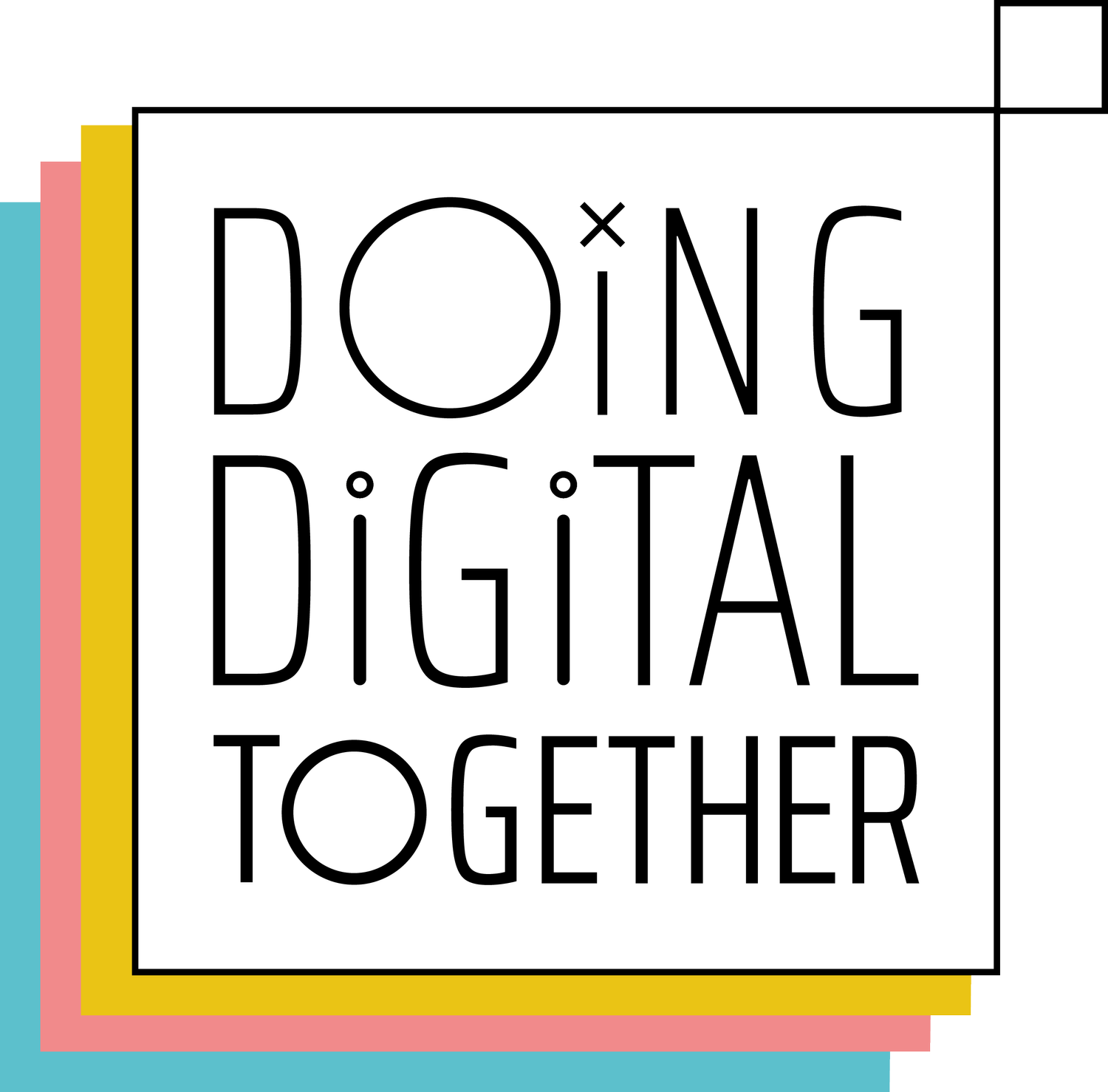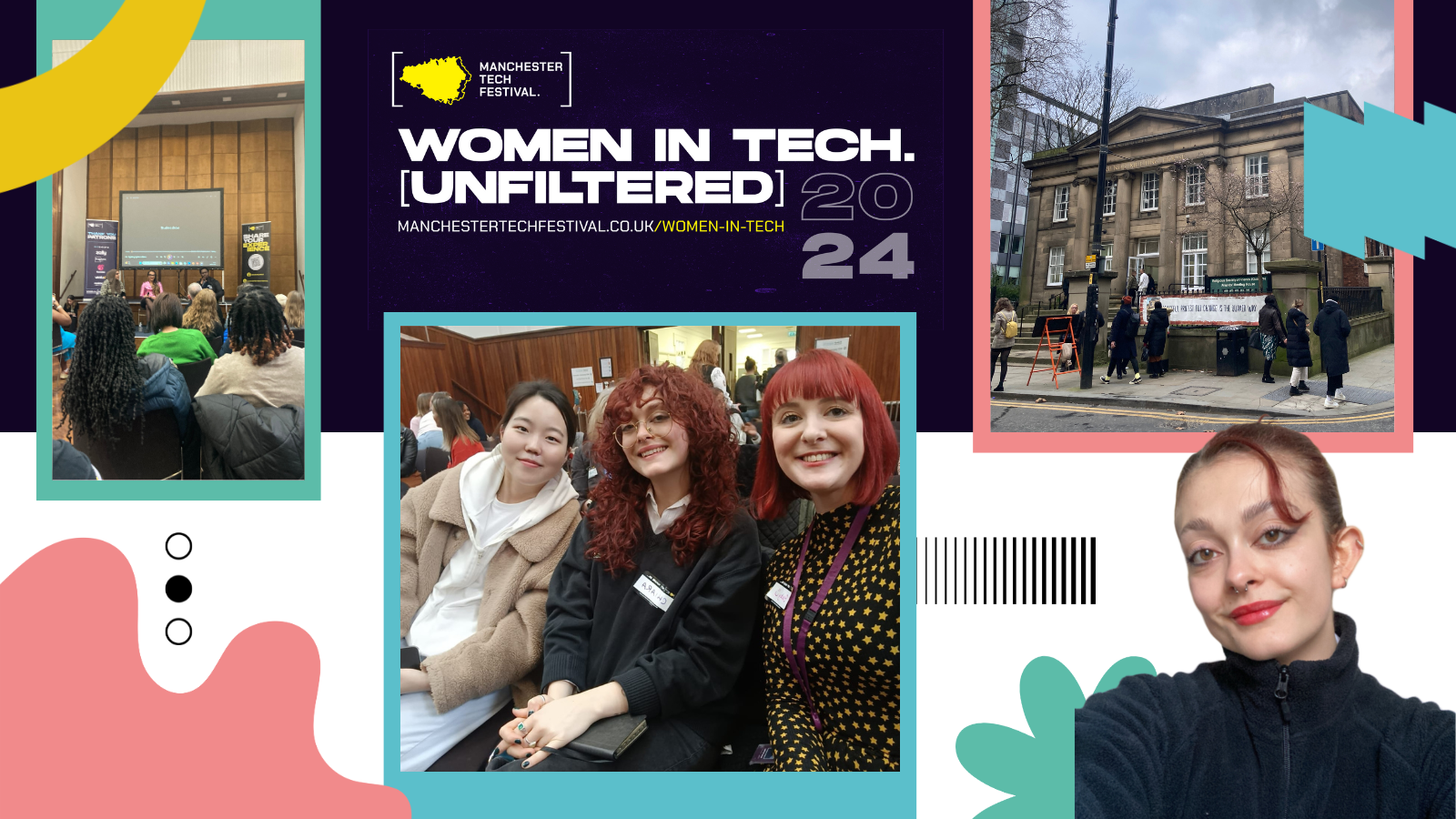Event Report: Reflections on Women in Tech [Unfiltered] Part 1
Digital Officer Becky McMillan and volunteers Chiara Bassini and Hyeran Lee attended a day of empowering talks at Women in Tech 2024!
On Friday 8th of March, celebrating International Women's Day, I had the privilege to participate in Manchester Tech Festival's Women in Tech: Unfiltered with Manchester's Digital Strategy team.
As a student, it was empowering to see all these brilliant people discussing their REAL experiences in the tech world. And I am emphasising the world REAL because it’s so easy to avoid difficult topics and sugar-coat them. When discussing diversity and inclusivity it’s easier to focus on the positives of what has already been done, rather than looking into what still needs doing.
I found the ‘Pet to Threat’ talk by Kanika Selvan extremely insightful. As a white woman, I cannot fully understand the challenges faced by racialised people, but I think that her talk sheds light on what still needs doing in the working world - not just the tech industry! It’s already difficult to be a woman in tech, but if you’re a racialised woman, you have a disability, or you’re queer… your experience will be even more challenging.
The fireside chats with Sobia Iqbal, Vernon Richards, and Kanika Selvan, only served to confirm the harsh realities described by Kanika of racialised women going from ‘Pet to Threat’. Sobia and Kanika explored the experiences of women that not only became a threat but were actively forced to leave, without recourse. The speakers pointed out how only 1/3 of racist allegations are investigated in the workplace, which leaves the majority of them – 2/3 – unexplored. Sobia, Kanika, and Vernon also challenged the positions of HR and EDI in a way that could be more helpful for those in need, such as recognising the impact of culture and ethnicity in the workplace, as well as anonymising CVs, among other options.
I am aware of my privilege, and luckily, I have never been in such a difficult position, but these talks made me reflect on how isolating it must be for people to have to go through these experiences by themselves. This can be especially difficult when departments such as HR and EDI fail to act for fear of repercussions and go against the people in charge! It’s infuriating that in 2024, there are still those kinds of barriers in the workplace. And it’s not even a matter of barriers, it’s a matter of basic human rights. As a white person, it’s my job to amplify and support the voices of racialised people, to make sure that they are heard.
On top of this, something that made me extremely angry was the realisation that the gender pay gap will take years, if not decades, to close. It’s hugely disheartening for someone like me who is looking to make their career in tech – or in any field really – to know that if only I was born a man, I would be earning more money.
Another talk that resonated with me was about menopause in the workplace, delivered by Clare Sudbery (she/her) and Janet Coulthurst. It might seem shocking to some, but even I, as a woman, didn’t know what women go through during menopause, and how that can profoundly affect the way we work and behave at work. I think it is crucial to establish funding for menopausal and peri-menopausal women so that they can access private hormone replacement treatments, as well as be granted time off from work. In general, there needs to be awareness from the wider society, to make sure that needs are accommodated, support is provided and, most importantly that those people are kept in the workplace.
Reflecting on what I have heard, I feel immensely grateful to the working environment of Manchester's Digital Strategy which welcomed me two months ago. All the projects we have been focusing on have diversity and inclusivity at their crux. And I know these are buzzwords, but I have seen the change unfolding before my eyes in these past couple of months.
The team in itself is inclusive: we all bring a genuinely diverse range of backgrounds, experiences, and perspectives. The projects, as well as the content we share, promote inclusivity and diversity. For example, the project that Hyeran (Hailey) Lee has been working on for the past couple of weeks revolves around smart cities and how Manchester is on its way to becoming one. One of the crucial ways Hyeran was able to do this, was by comparing it with smart cities in South Korea, where she comes from. I can proudly say that there are 5 women on our team out of six, two of whom are women of colour.
The joint efforts of Manchester's Digital Strategy and the Digital Inclusion team ensure fair access to the digital sphere while providing essential tools like laptops and other devices. Their mission is to equip all individuals with the necessary skills, access, and resources to navigate the online landscape effectively. Central to this initiative is the commitment to cultivating digitally proficient residents, that are empowered to thrive in a dynamic digital economy. Ultimately, the overarching goal is to prioritize people in our endeavours, striving to construct a future that's equitable and inclusive.
In conclusion, Women in Tech: Unfiltered served as a poignant reminder of the ongoing challenges faced by women, particularly those from marginalised communities, in the tech industry. We have to continue to advocate for greater inclusivity, equality, and support for all individuals, regardless of gender, race, or background.

